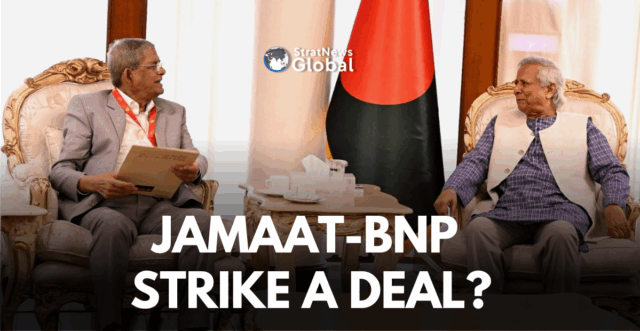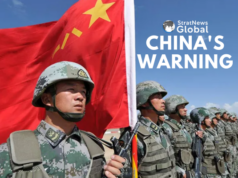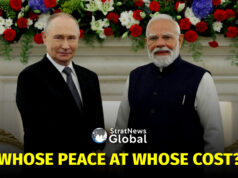The Hefazat-e-Islam (HeM) in Bangladesh has set May 3rd as the deadline for the interim government to dissolve the Women’s Affairs Reform Commission, claiming it is “anti-Islamic” and “Western-inspired”.
The HeM was not alone in its threat of violence if the commission was not dumped. Its Islamist allies like the Jamaat-e-Islami, Bangladesh Khelafat Majlis, and Islamic Unity Alliance have joined hands in opposing what political parties otherwise see as a “progressive” measure.
Would women’s rights have figured in the recent meeting in London between leaders of the Jamaat and the BNP of Khaleda Zia? The narrative from both sides is that these were “courtesy calls” and nothing more. But this is serious given the general view that both sides are keen to work together with an eye on the elections likely towards the end of this year or in the first half of next year.
The Jamaat, outwardly, has no interest in the election since it was banned in 2013 by the Election Commission, which was upheld by the high court. A subsequent ban by Hasina’s government for involvement in the protests against her was lifted by the interim administration, but that does not automatically restore its registration as a political party.
That could change if the Jamaat leadership senses the political winds are in its favour and seeks to re-register. It may explain its preference for reforms first and elections later, which is the same line advocated by Mohammad Yunus, head of the interim government.
“Reforms are a red herring that are simply being used to postpone the elections,” says Pinak Ranjan Chakravarty, former high commissioner to Bangladesh. “That’s the peg on which they can hang on to.”
The BNP, on the other hand, is demanding elections as soon as possible. Riva Ganguly Das, another former high commissioner to Bangladesh, says: “With the Awami League out of the picture, BNP is now the largest party in Bangladesh. Besides their own dedicated voters, who are substantive, they will try to woo the secular centre voters.”
The Jamaat knows this, and while it has the ability to bring the crowds out, it is unsure whether that will translate into votes. Therefore, the need to piggyback on the BNP.
“Without BNP, they have no hope of getting power in a free and fair election,” says Pinak Ranjan Chakravarty, another former high commissioner to Dhaka. “So they obviously have to tag on, which they did last time with the BNP.”
Even as the Jamaat moves to consolidate its position, it may have to confront an ugly part of its history: its collaboration with the Pakistan army during the genocide leading up to the war in 1971.
Das notes that “A lot of anti-Hasina people are still very much pro-1971. Many of them do realize that Bangladesh’s identity depends upon the liberation war of 1971.”
In other words, while many people may be anti-Hasina and anti-Awami League, they also strongly support the war that liberated them from exploitation by Pakistan.
In recent times, the Jamaat Ameer Dr Shafiqur Rehman has offered to apologise if its actions in 1971 were proven wrong. But who will prove them wrong is not clear. A truth and reconciliation commission, perhaps on the lines of what South Africa did. But will the Jamaat even accept that it had done wrong?
There are other issues: will the Awami League be allowed to compete in the elections? No, says Interim Adviser Yunus. Why not, says the BNP.
Former high commissioner Chakravarty says, “Even if the Awami League decides to compete, BNP will do what the ISI did in Pakistan. If you stand for election, they’ll go around and threaten you that if you don’t step down, then we’ll beat you or put you in jail.”
A reminder that the boot once worn by the Awami League is now waiting to be worn and “exercised” by new owners.





